One of the pivotal aspects that emerging true crime podcast researchers often grapple with is setting a fair and sustainable rate for their services. In this comprehensive guide, we’ll explore why starting at $20 per hour and negotiating upwards over time is a strategic approach for those new to the true crime research field.
Understanding Your Starting Point: As a beginner in true crime podcast research, your initial focus should be on building a robust portfolio and gaining experience. Starting with a rate of $20 per hour serves multiple purposes. It positions you as an affordable option for podcast creators, many of whom may be operating with limited budgets. This rate also acknowledges your current level of experience while leaving room for growth as you enhance your skills and expertise. Here’s our reasoning, but feel free to disagree and charge whatever you want! This is just the True Crime Podcast Training recommendation.
1. Building Trust with Clients: The true crime genre demands accuracy, sensitivity, and an ethical approach to storytelling. As you embark on your journey, the first step is to build trust with your clients. Demonstrating reliability, attention to detail, and a commitment to ethical research practices will lay a strong foundation for this trust. Initially, your focus should be on delivering exceptional work that meets the client’s needs and expectations. Having a lower rate at first allows a client to feel comfortable taking a chance on you. Once they see the quality and consistency of your work, discussing pay raises becomes more plausible.
2. Enhancing Skills and Knowledge: Continuous learning is key in true crime podcast research. As you progress, invest time in enhancing your research skills and familiarizing yourself with the nuances of ethical storytelling in true crime. This could involve attending workshops, participating in relevant webinars, or engaging with seasoned researchers for mentorship. Improvement in these areas will not only boost your confidence but also add significant value to the work you offer your clients. Just like any field, as you gain knowledge you gain more ground to request a higher rate.
3. Demonstrating Value Over Time: As you acquire experience, you will start to bring more to the table. This could be in the form of faster turnaround times, more in-depth research, or even assisting in shaping narratives in a victim-centered way. Keep track of your achievements and the positive feedback from clients. This documented progress will be crucial when you decide to negotiate a higher rate. Data is also compelling to clients. Have their numbers improved since you started working for them? If so, include that in your rationale when requesting a raise.
4. Timing Your Rate Increase: There’s no one-size-fits-all answer to when you should increase your rates. However, a good indicator is when you consistently receive positive feedback and repeat clients, or when you notice a significant improvement in your skills and output. It’s essential to approach this topic professionally, providing justification for the increase based on the value you bring.
5. Communication is Key: When the time comes to negotiate a higher rate, clear and professional communication is vital. Prepare a concise summary of your accomplishments and the additional value you now provide. Be open to discussions and feedback from your clients. Remember, negotiation is a two-way street, and being receptive to your client’s perspective is important. There’s always the possibility they refuse your request for a rate increase. Don’t take it personally. It’s business. But, since it is business for you, too, you could always consider looking for higher-paying clients elsewhere.
Starting your true crime podcast research career at $20 per hour and gradually negotiating upwards is a balanced approach that respects both your current capabilities and your potential for growth. It allows you to build trust with clients, refine your skills, and gradually increase your rates in line with the enhanced value you provide. Remember, in this journey, continuous learning, ethical integrity, and clear communication are your most valuable assets. Embrace the process, and you will find your place in the dynamic and impactful world of true crime podcasting. Alternatively, set your rate wherever you feel best reflects your skillsets. We’re here to help, but these are not hard and fast rules.


